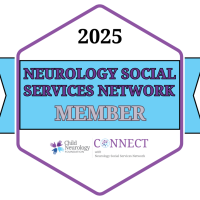About Genetic Testing
The most common types of genetic testing used for pediatric patients are whole exome sequencing and whole genome sequencing.
Whole exome sequencing, as explained by the U.S. National Institutes of Health, National Genome Research Institute, are “…laboratory methods that allow them {scientist} to just sequence a genome’s exome; in other words, just the part of the genome that directly encodes for proteins.” Doctors use this genetic test often when there is an array of different, often rare, symptoms in a child, and they have been unable to arrive at a diagnosis. The whole exome sequencing takes a snapshot of the proteins in a specific group of genes most associated with rare diseases. This can be a faster way for doctors to arrive at a child’s diagnosis.
Whole genome sequencing, as defined by The National Institute of Cancer, is a “Laboratory process that is used to determine nearly all of the approximately 3 billion nucleotides of an individual’s complete DNA sequence.“ This test is often used when the whole exome sequencing does not reveal a clear medical diagnosis, so the entire available DNA sequencing is required to pinpoint all of the exact differences in that individual’s genes which together are causing the whole array of symptoms. With this broader picture doctors have the best opportunity to arrive at the correct medical diagnosis for the child.
Performing the children’s testing
All that is needed from the child is a saliva sample or blood sample. The sample(s) are then sent to the approved laboratory for genetic sequencing.
The special laboratory used for genetic testing
All testing is performed in a U.S. Clinical Laboratory Improvements and Amendments (CLIA) laboratory which has been certified by the Centers for Medicare & Medicaid Services (CMS), part of the United States Department of Health and Human Services. The latest genetic sequencing technology is used to produce the genetic testing results in as little as 3 weeks, about half the time of other testing laboratories.
About partnering with the Help Undiagnosed Children Foundation (HUCF)
We welcome the opportunity to explore partnerships with other individuals and/or groups and organizations to aid us to find more undiagnosed children in medical and financial need so we can help them with genetic testing.
Please Note: None of the forgoing information should be construed as medical advice as it is for general informational purposes only. HUCF collaborates with medical doctors who ultimately arrive at the medical diagnosis for a specific patient, sometimes with the assistance for genetic testing to be paid for at a reduced cost, or all of the cost, by HUCF for sick children in financial need.

